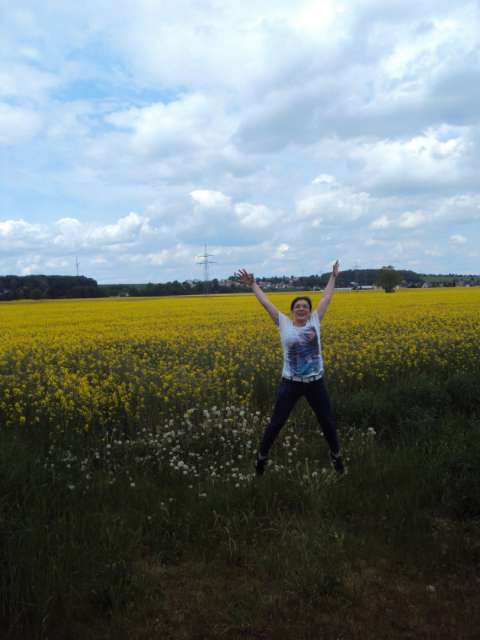
unterwegsaufadlerschwingen
vakantio.de/unterwegsaufadlerschwingen
Take a breath
ಪ್ರಕಟಿಸಲಾಗಿದೆ: 02.10.2016
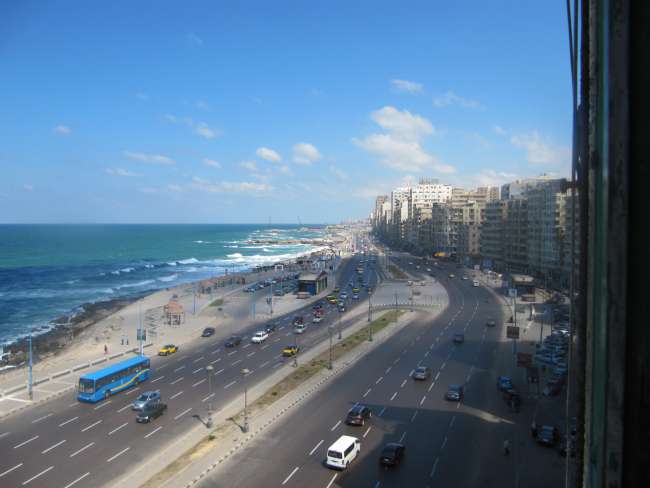
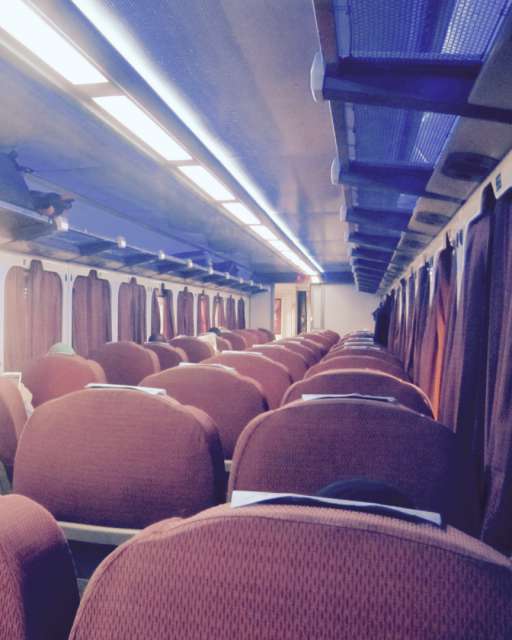
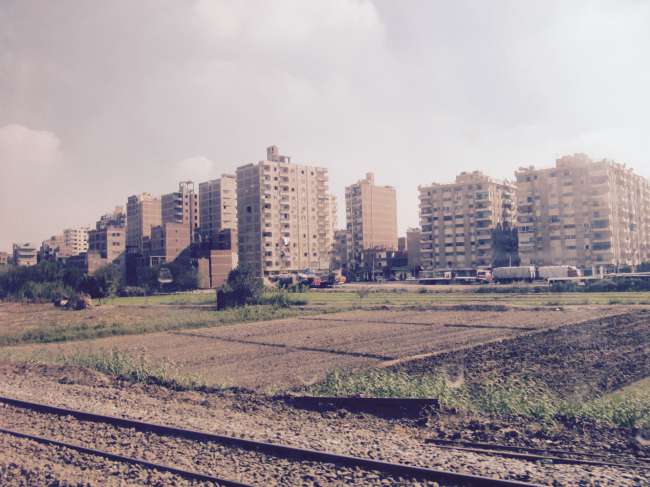
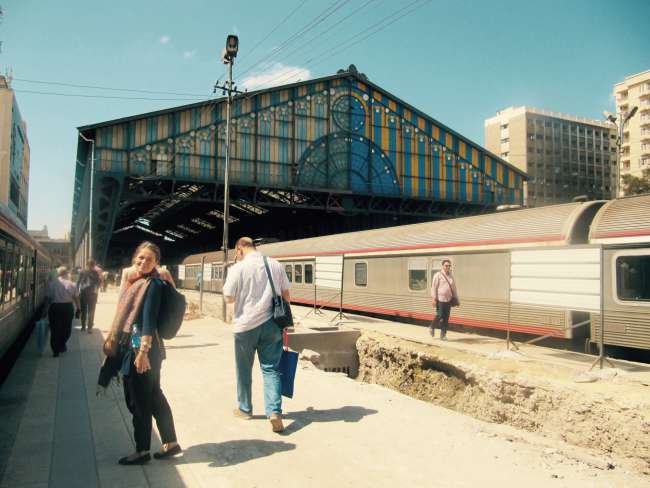
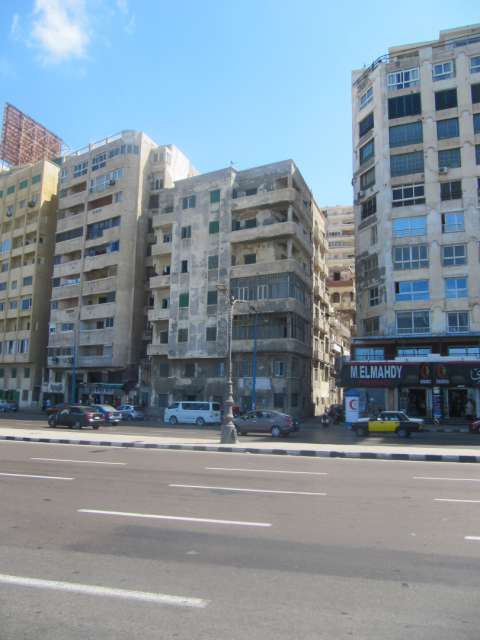
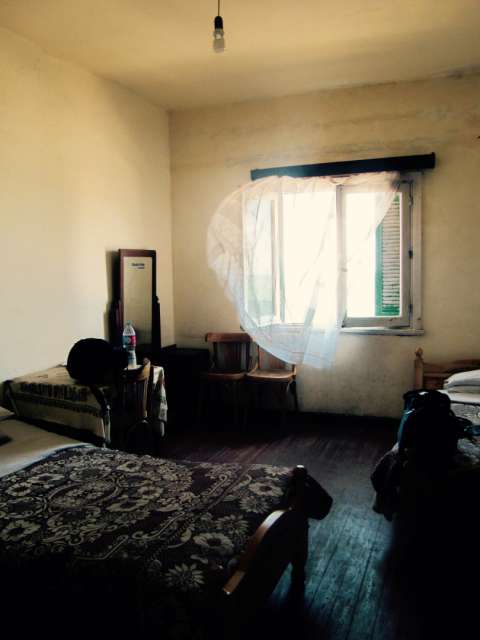
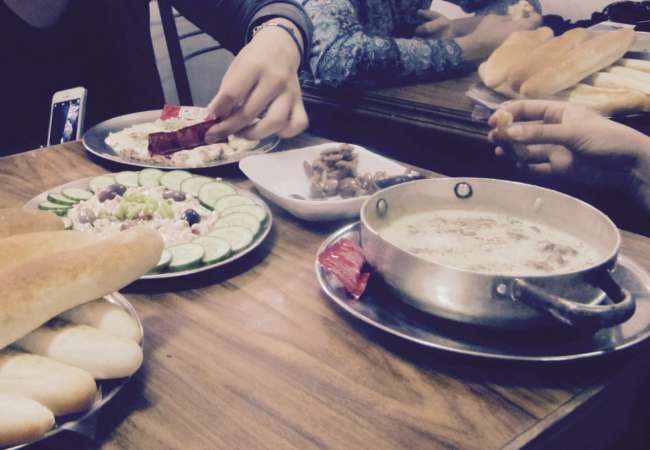
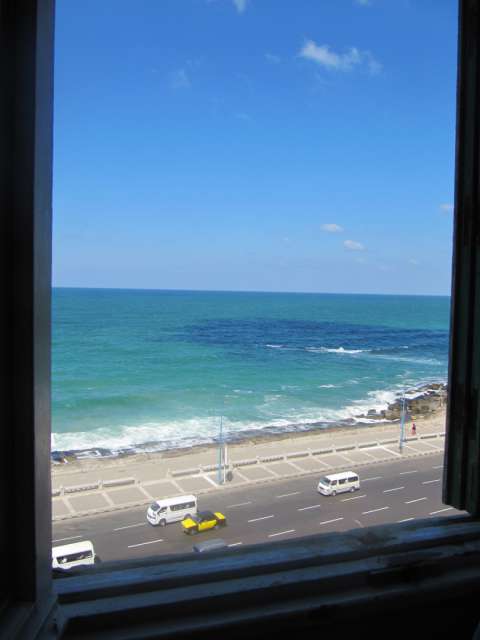
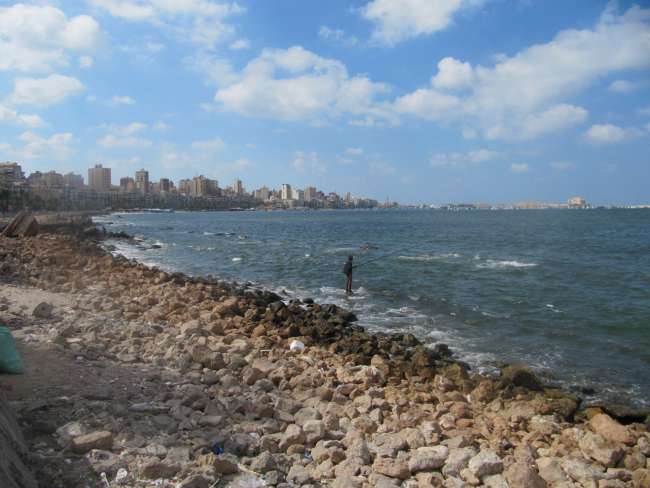
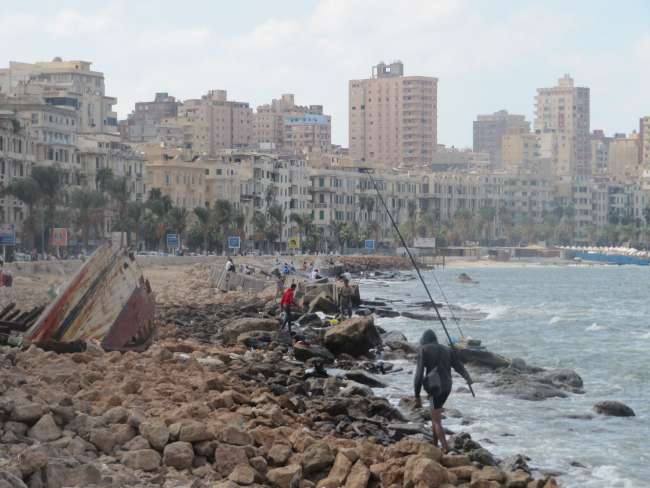
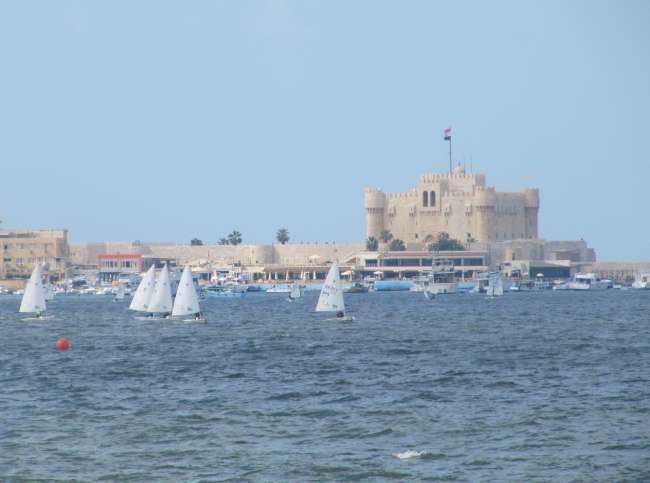
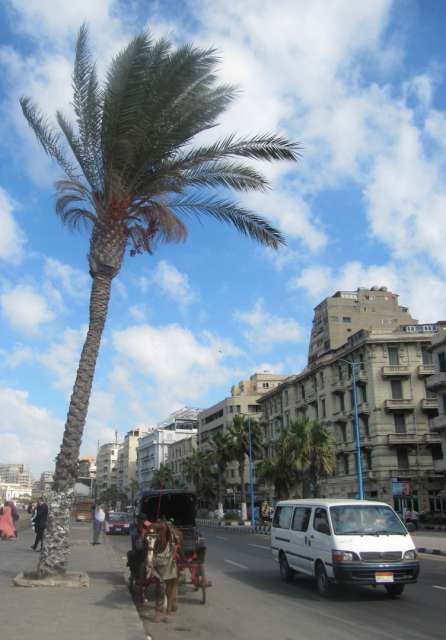
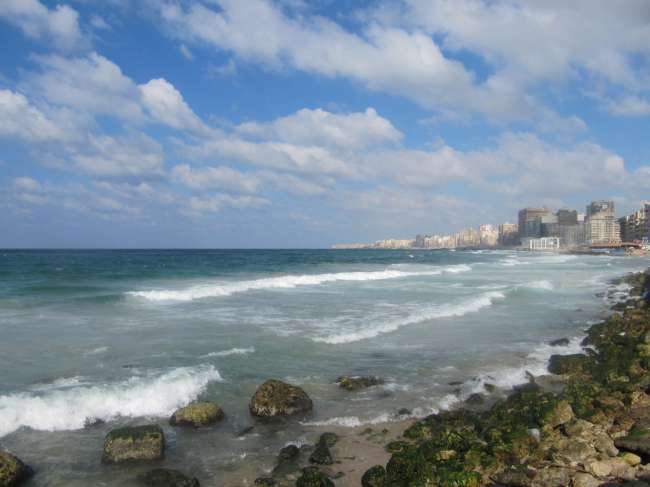
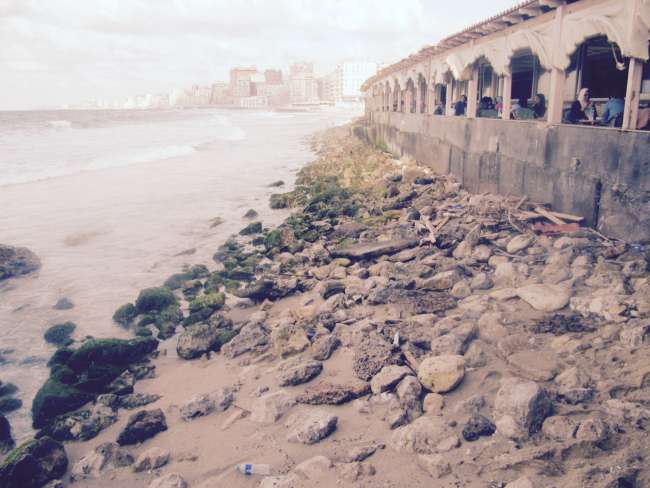
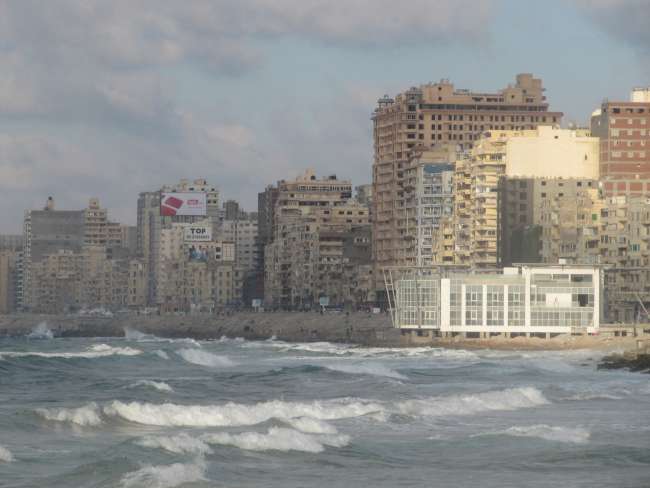
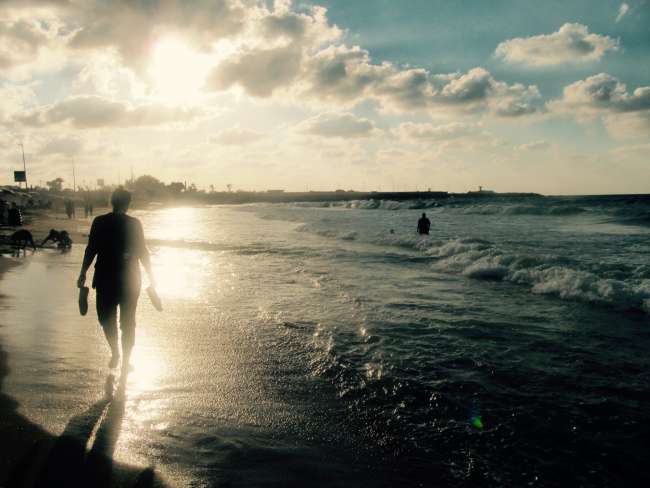
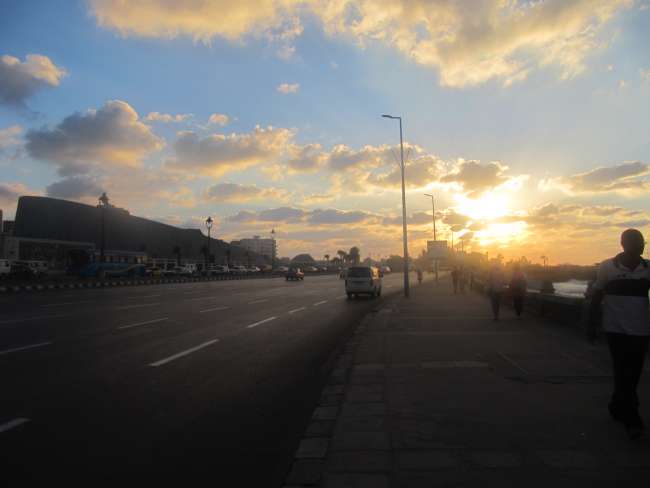
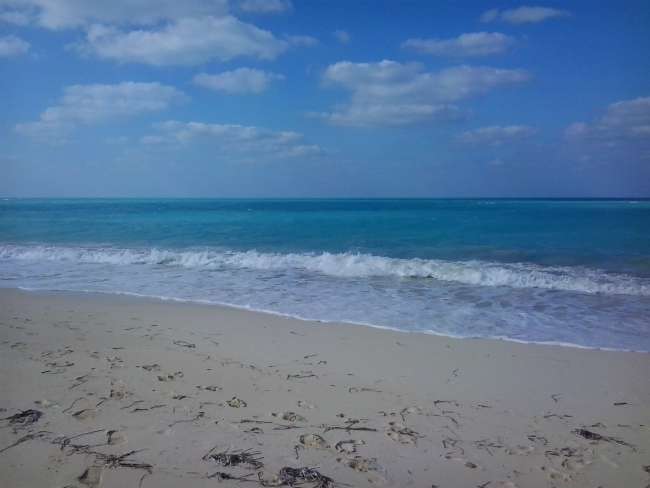
ಸುದ್ದಿಪತ್ರಕ್ಕೆ ಚಂದಾದಾರರಾಗಿ
Two hundred kilometers west of Cairo, on the Mediterranean coast, lies Alexandria, Egypt's second largest city after Cairo. Five million people live here on a coastline of over thirty kilometers. The city is easily accessible by train from Cairo. Trains operate between the two cities every hour. One of the few railway lines in Egypt's otherwise limited railway network.
It is late September when my two German classmates and I, who are studying with me in Cairo, embark on the almost three-hour journey. We want to spend our 'weekend', Thursday and Friday, in Alexandria. A friend lives here with his family and has invited us to visit him. So we board the train early at 8 and finally roll out of Cairo's train station with just a fifteen-minute delay.

We are in first class, the ticket cost us only €5. The compartment feels like the Ice Age, I wish I had packed a jacket. The air conditioning is turned up all the way, even though it's only 30 degrees outside now. I press myself into the comfortable seat and recline the backrest a bit. Then I slide aside the curtain at the window and look curiously outside. It takes a good half an hour until we leave behind the large, dreary buildings of Cairo, then it gets greener: The journey takes us through Egypt's Nile Delta, which accounts for almost seventy percent of Egypt's agricultural land. That's why the majority of the population lives here. Cultivated fields alternate with brown arable land, with palm trees in between. Several times we cross iron bridges that span the two branches of the Nile and their artificially constructed canals. And there are also some colorless, dirty-looking cities along our way.
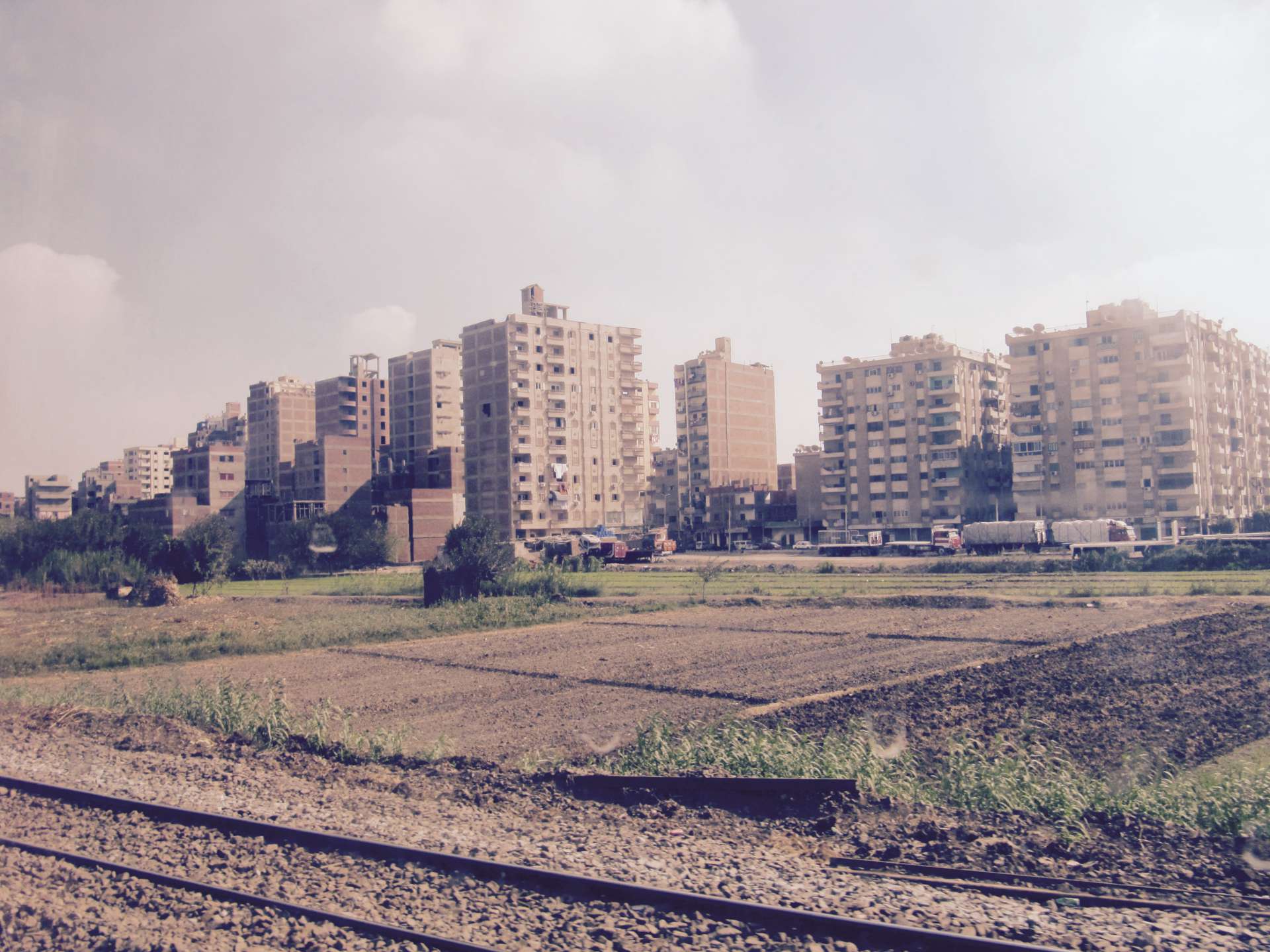
During the journey, I feel myself relaxing. Only now do I realize the tension that has spread within me during the last three weeks in the chaos of Cairo. The noise, the countless impressions, the constant need to be on guard to avoid getting run over by a driver's wheels, have worn me out. Although I never felt the excitement as negative.
Finally, at noon, we reach Alexandria. Ahmed* is waiting for us on the platform and directs us out of the building. We wait for the taxi he ordered through a mobile app in front of the train station. You cannot trust the black and yellow taxis that are everywhere on the streets of Alexandria. Unlike in Cairo, they don't have a meter in the car, so the drivers can set the fare as they please. Although taxis in Cairo are not always equipped with a functioning or unmanipulated meter either. In the meantime, however, I have learned that the maximum fare for the journey to the metro station is seven Egyptian pounds (70 cents).

The taxi takes us to Alexandria's 'main street', which runs along the coast from east to west. To our left, the sea appears. Our destination is a small hostel on the main street. It is located on the fifth and sixth floors of a building that looks quite run down from the outside.

The dirty, creaking wooden door, which stands slightly ajar, does not make a very welcoming impression. We step into the dark hallway and from there into the elevator, which only goes up to the fifth floor. When we leave it again and the door closes behind us, we see the sign hanging next to the elevator: Only two persons. But we are still alive. A friendly woman at the reception greets us and leads us up the stairs to the next floor. That's where our room is. It looks old but nice. And then we take a look out the window and forget all reservations: We look directly across the street at the sea!


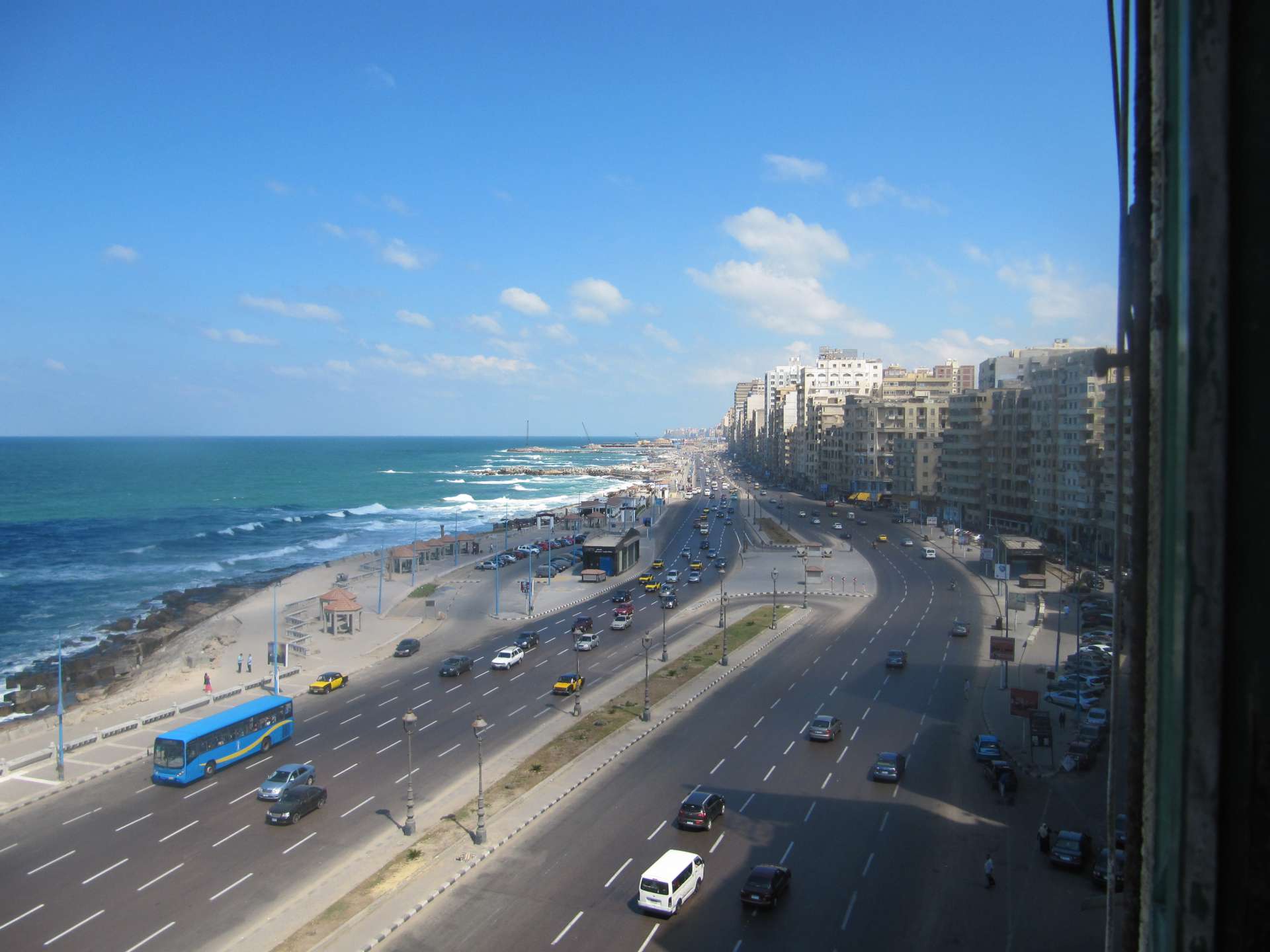
Our next stop takes us to a small restaurant in one of the narrow alleyways of the city. Alban Swissra, Swiss dairy products, is written on the sign above the entrance. We take a look at the menu. Salad, olives, sausage, tuna, ... with cheese. No matter what you choose from the menu, you can only get it in combination with cheese, Ahmed explains. There is also baguette, as much as you can eat. We order practically everything on the menu. While we dip our baguettes in the various cheesy dishes, the cook and his waiters watch us curiously. Western tourists usually don't wander here. Alexandria is not a hotspot for tourists. When people visit Egypt, they mostly want to see the pyramids first and foremost. Or they go for a swim in the Red Sea, where it's much warmer.

I give a thumbs up, my 'Mumtaz!' (fantastic). The cook's teeth flash. For dessert, the highlight: Rice pudding. Not just any rice pudding, Roz bil Laban, Egyptian rice pudding. It is offered as a dessert in most simple restaurants here. I never really liked rice pudding before. But in the Egyptian version, which is much softer and creamier than in Germany, I have definitely found my new love. Back in Cairo, I quickly found out where I can buy it near me.
After our cheesy meal, Ahmed has to leave for a few hours. So we walk along the promenade by the sea, alone, and sit for a few minutes next to other people on the wall that separates the coast from the road. Young men stand between the rocks and the flotsam that has accumulated on the beach and cast their fishing lines between the waves. Immediately, I think of the boat full of migrants that sank a few kilometers east of here and recently made headlines in the Egyptian media. An acquaintance said in this context: 'Until recently, we were talking about rising prices and bad politics. So quickly give people something else to talk about, and quickly the high prices will be forgotten.' How similar we humans are in some things.
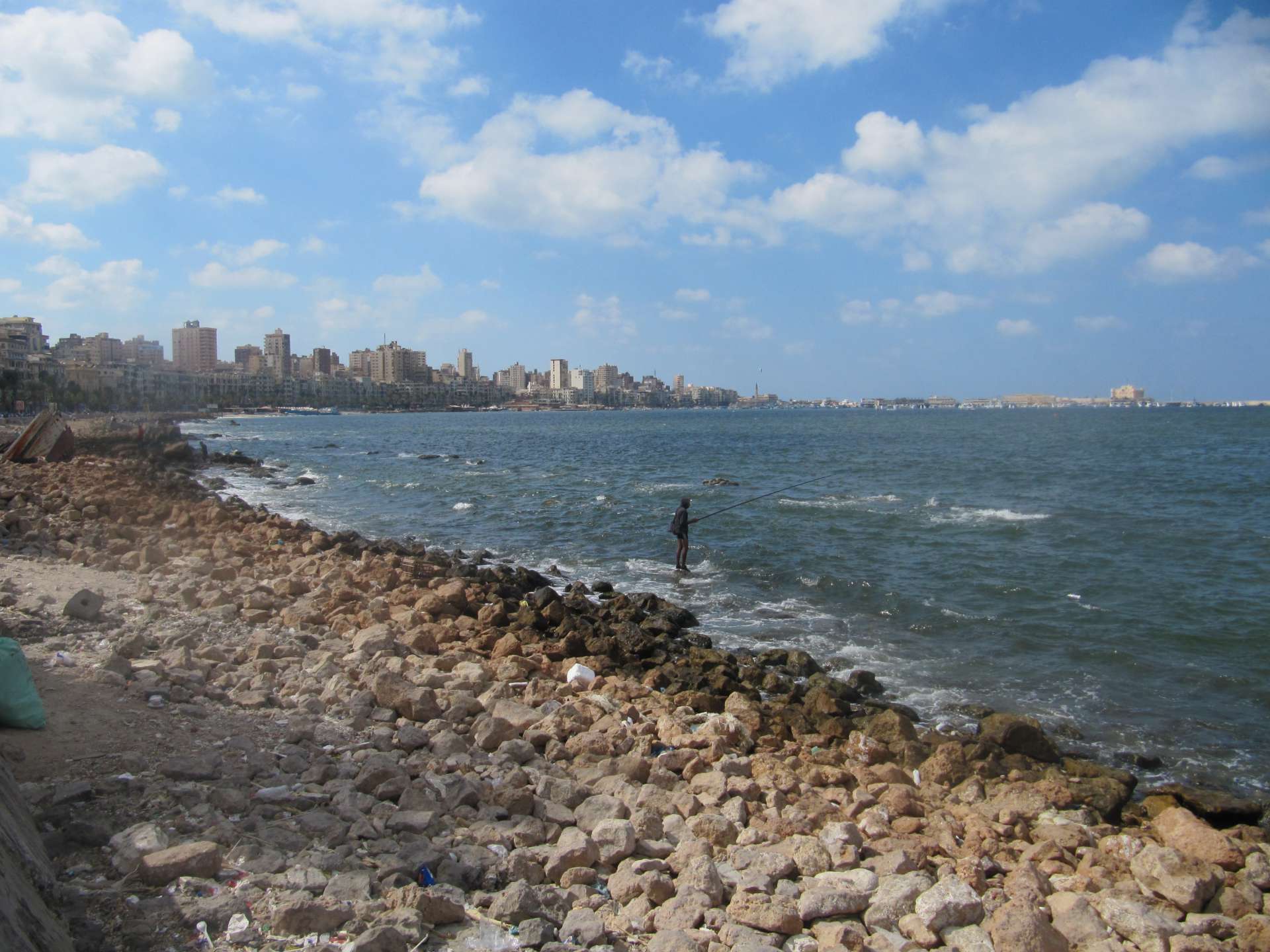

We enjoy the fresh air, which is much less thick here than in Cairo. It is also cooler, even though the sun is still shining relentlessly. During the whole month I have been here, it has not rained once in Egypt. If the sky actually does darken, it is due to the thick smog. In winter, you might expect one or two short showers, I was told. Hopefully, I won't be sleeping at that time.
Finally, we sit down in a café. From the veranda, we look out at the sea and listen to the waves. But if you lean your head directly over the railing, you mainly have a good view of a lot of garbage that has washed up on the beach. When we leave the café, our clothes are dotted with the salty water dripping from the roof.
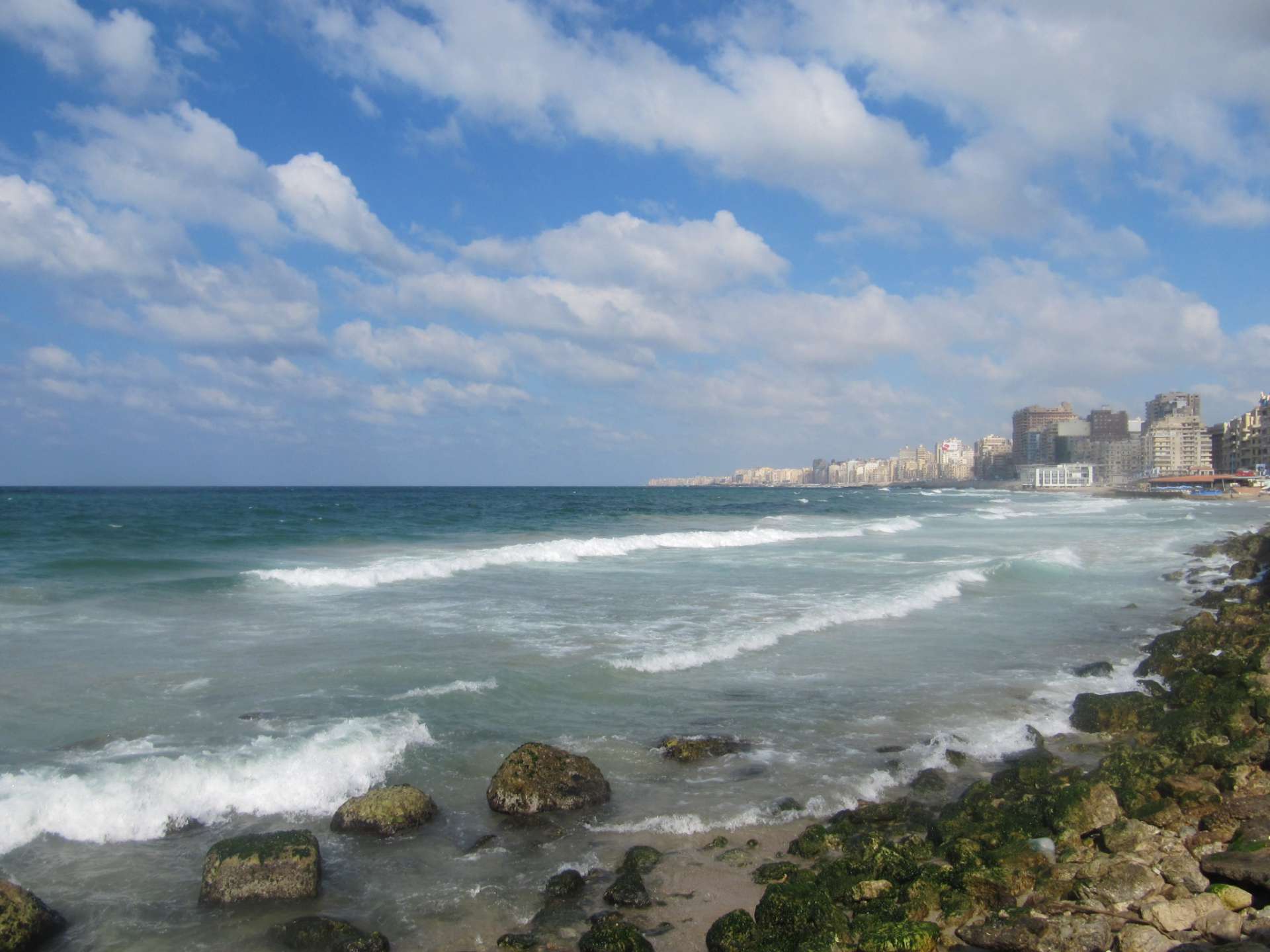

Next to the café is a small sandy beach. As we walk barefoot along the edge of the water, the sun slowly sets and bathes the sand and water in a warm color. The waves gently wash over our feet at first, but in the next moment, I am up to my knees in water. When Ahmed finally picks us up, my jeans are not only wet but also covered in sand.
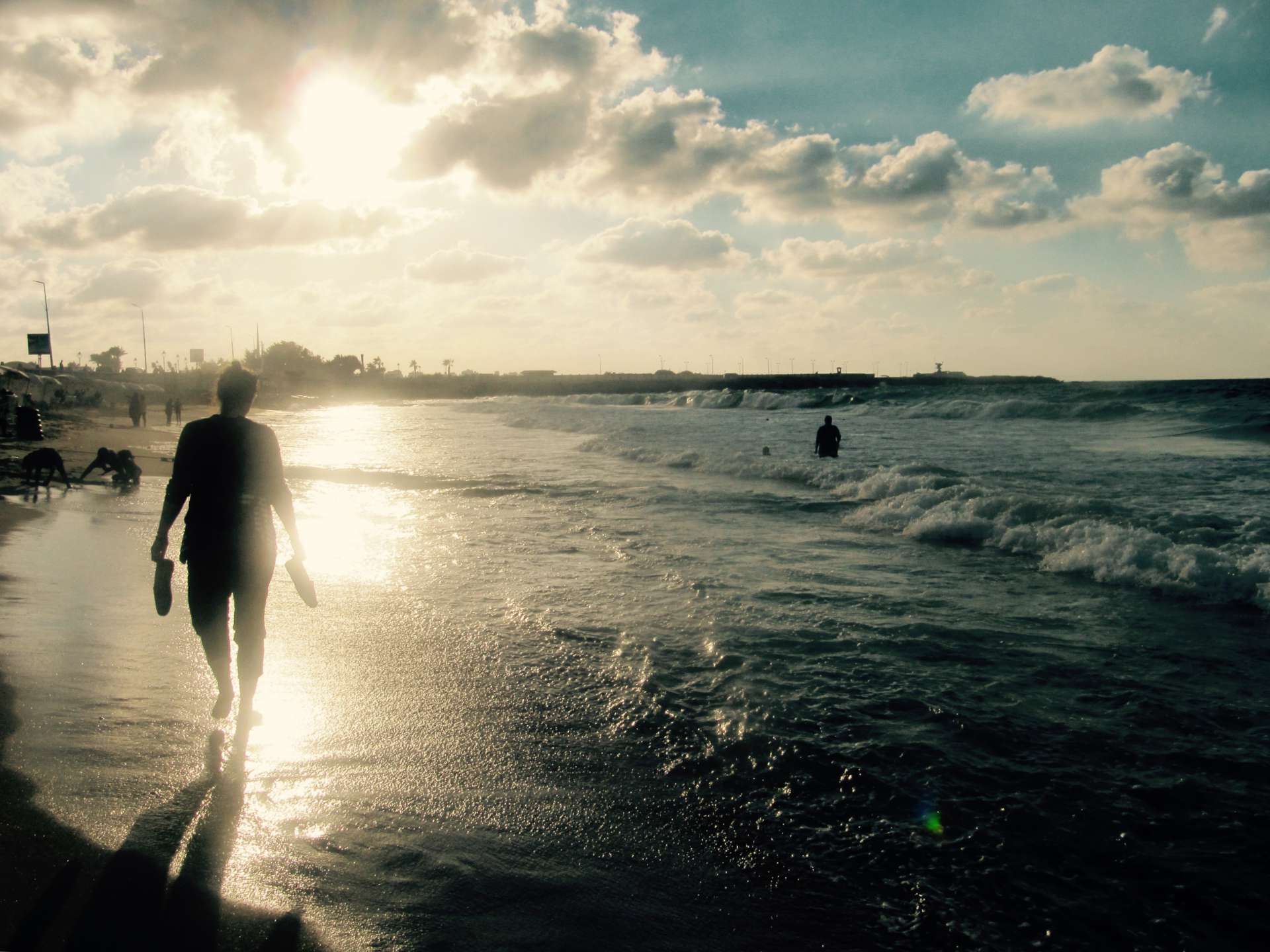
We take a minibus along the coastal road a few more stops. We get off at a small side street, which seems to be a touristy area. There are a few tables with jewelry, seashells, and miniature pyramids on both sides. But most of the space is occupied by numerous horse-drawn carriages, in which the wealthy population of Cairo is chauffeured through the city.
The street leads to a promontory that juts into the sea, and at the end of it stands Alexandria's most famous landmark, the Qaitbay Citadel. We only look at it from the outside and climb the large boulders standing in the shallow water. While the waves, eerily illuminated by the light of the fortress, crash against the rocks and in the distance the lights of huge freighters flicker, we talk about our plans for the future. Ahmed dreams, like me, of traveling to many other countries. Unfortunately, these plans are not nearly as easy to realize for someone who can only present an Egyptian passport, like him.

After a while, we walk back to the city. We meet two friends of Ahmed's at a fish restaurant. We have to wait what feels like an hour for a table to become available. I take it as a good sign. However, when Ahmed's friend beckons us in and leads us to an unoccupied table, I stand a few steps away in disbelief. 'They eat like pigs.' I dryly blurt out. I hear Ahmed laugh behind me. But I am absolutely not amused when I stare disgustedly at the table, which is covered with food scraps, fish bones, and crumpled napkins. In between, a few empty plates. I absolutely don't understand why they couldn't stack the garbage on the plates. While we wait, a waiter comes by. With a dry sponge, he pushes the remains into a bucket. He puts the remaining bread and the sliced lemons, which were in between, on a separate plate. Together with the garbage, a stack of dirty dishes, and the seemingly still usable leftovers, it disappears. The others sit down. I stand rooted to the spot. What? And that's it? No wet cloth? No disinfectant? Ahmed shakes his head. With a look of pity, he takes out tissues. Together with his friends, he wipes the table with them once again. They are almost surprised by the dark color that the paper has taken on. I silently take a deep breath. I make a great effort not to show my disgust and sit down at the table with an expressionless face. While the waiter now fills the table with salad, several bowls of rice, and a plate of lemons and bread, I think of the many warnings from my acquaintances: no local restaurants in hidden lanes, no raw vegetables, and above all, caution with meat and fish. I think of the raw fish, which was lying unrefrigerated on a table near the entrance. And of the dreaded Curse of the Pharaoh. That's what they call a severe case of diarrhea here, which often affects tourists. The waiter now places plates of grilled fish, shrimp, and other fish dishes in front of us. I feel Ahmed's gaze from the side. I swallow once again, then I confidently reach for the food. I put a piece of grilled fish in my mouth. The second piece is even bigger. Quickly, I forget my concerns. Maybe they have a different understanding of hygiene here, but they can definitely cook. The fish is incredibly delicious! And the rice and the bread that you can dip in a sesame sauce-like dip are tasty too. I just don't dare to touch the vegetables.
After we have eaten our fill and the leftovers are neatly stacked on the plates, we go to a typical Arabic shisha café. When we finally come home, our batteries are empty - both technically and physically. Unfortunately, there is only one power outlet. Luckily, I managed to explain our problem to the night attendant - with my limited vocabulary and mainly with gestures. We get a power strip from the private living room. Unfortunately, I realize that I forgot the charger for my camera.
I take a thorough look under the duvet before going to sleep: Although the bedsheet does not look particularly clean, at least I don't discover anything alive. So I try to get comfortable on the hard mattress somehow. Eventually, I fall asleep quickly.
The next morning, I am the first one to wake up. Ahmed doesn't want to pick us up until noon to take us to a beach outside Alexandria. So I pack my diary and quietly leave the hostel. In a small shop on the street, I buy a pack of cookies. At the beach, I order a cappuccino. While I enjoy my incredibly healthy breakfast, I listen to the waves crashing against the shore. I realize once again how good it feels not to have constant honking in my ears. Although Alexandria is still huge compared to Leipzig, the city seems so much more peaceful, calm, and settled than Cairo. I watch the joggers running along the footpath by the coast. A continuous footpath, that should definitely be emphasized. I would like to have one like that in Cairo too. There is a footpath along the Nile riverfront as well, but in true Cairo fashion. Constantly interrupted, blocked by piles of garbage and parking spaces. And the view of the Nile is often obstructed by expensive restaurants, sports clubs, and luxury boat docking areas. At least in Maadi. Jogging there is quite challenging. Especially since I'm afraid that the thick air on the multi-lane road increases my risk of lung cancer by ten times.
By noon, the other girls join me. Shortly after, Ahmed and his friend pick us up by car. We first stop at the train station to get tickets for the return journey in the evening. I ignore Ahmed's warning and take the opportunity to go to the restroom. I have seen many toilets in my life. It can't be worse than the holes in Ukraine. Well, at least the holes in Ukraine had a flush. The holes I find here at the train station, however, are equipped with a water hose instead of a flush. Unfortunately, it seems to cause some difficulties for some people to hit the toilet bowl. The floor is flooded halfway. In addition, it is almost impossible to reach a sink. Numerous men crowd around the few sinks and not only wash their hands and faces but also contort themselves unimaginably to hold their feet under the faucet. Ahmed explains to me later that it is the spiritual cleansing before prayer. And indeed, I notice that some men kneel on a carpet in front of the toilets and pray there.
We don't drive far until we stop again. This time at a huge shopping center to withdraw money and buy something to eat for the road. The others also want to use a proper restroom. I am absolutely amazed when I see what exactly they consider a proper restroom. Shiny tiled floors, electric hand dryers, huge mirrors - toilets like those found in a five-star hotel. And unlike the toilets at the train station, no one stands at the entrance and demands an entrance fee. So, this is where the rich go to the toilet. Well, and shop, of course. There are plenty of such department stores in Cairo.
For us, it continues to the beach in Marina. Marina is a resort a hundred kilometers west of Cairo. This is where the elite from Cairo spends their summers. When the thermometer shows around 40 degrees in the shade. Because here on the Mediterranean, it's still pleasant even in the hottest months. The temperatures here are on average ten degrees lower than in Cairo. When the school holidays are over, they return to the capital. The holiday resorts on the Mediterranean then stand almost empty. And the beaches are visited by the inhabitants of the smaller towns in the surrounding area. And by us.
As we drive out of Alexandria, we initially see industrial areas to the left and right. We pass horribly smelling garbage dumps and huge basins where industrial wastewater is collected. Somewhere in between, a chimney rises to the sky and burns like a giant candle. Mohammed says that the exhaust gases have to be burned because otherwise, they would be too toxic for the people. After a few kilometers, the panorama changes. To our right, the sea appears again in the distance. Wait, the sea? Was the water intense turquoise yesterday too? For a moment, I think it's an optical illusion. The sea can't look so perfect here too. But we are not mistaken. The sun actually makes the water shine in a color like you only see on computer-edited photos. Unfortunately, most people have to make do with this view: the entire coast to Marina is filled with expensive holiday resorts. The ordinary population has no access to the water here.

We reach the beach in Marina significantly later than planned. We can stay for two hours, then we have to leave again to catch our train on time. But the time is enough to jump into the huge waves a few times, choke on the terribly salty water, and shake hands with a little jellyfish. And still, we start too late in the end. Zigzagging, we drive back to Alexandria, past trucks that are, of course, driving without lights and repeatedly brake momentarily to avoid potholes. At 8:06 pm, we stop at the train station. The train is theoretically supposed to depart at 8:10 pm. We quickly say goodbye to Ahmed's friend and then run towards the train station building. It takes a few minutes to find the right platform. But luckily, the train is still there. Although it would have been exciting to jump onto a moving train. Usually, the doors are not closed anyway. In the worst case, however, we would have been hindered by the people crowding in the entrance area of the lower classes of the wagons.
While we squeeze our way to our compartment, the car suddenly shakes violently. We start to sway briefly. When I look out of the open door, I notice that we are already moving. Apparently, we shouldn't have arrived even a minute later.
* Name changed
ಸುದ್ದಿಪತ್ರಕ್ಕೆ ಚಂದಾದಾರರಾಗಿ
ಉತ್ತರ (4)
Helena
Hey! Ein wirklich wundervoller Blog! Da ich im kommenden Jahr für einige Zeit nach Kairo gehen werde, wollte ich dich fragen, ob ich dir vielleicht ein paar Fragen stellen könnte! Kann ich dir vielleicht irgendwie privat eine Nachricht schicken? :) Jenni
Ja gerne, schreib mir mal deine Mail oder deinen Facebookkontakt, dann melde ich mich bei dir ;)Helena
Oh, darüber würde ich mich sehr freuen!! Das ist die: helena.lue9@gmail.com.
Dankeschön, und einen schönen Abend! Helena
Hey Jenni! Ich bin es nochmal! ;-) Hast du mir vielleicht schon eine Mail geschrieben? Liebe Grüße!